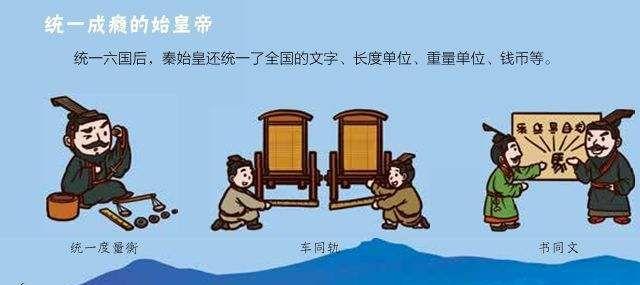
The Impact of Emperor Qin Shi Huang's Policies on Chinese Culture and Government
Emperor Shi Huangdi brought an end to the period of Warring States and created a unified China, both culturally and politically. Though his regime was oppressive, Emperor Shi Huangdi's reforms created the precedent for a more structured and unified Chinese culture.
Political Unification and Centralization
- End of the Warring States Period: Shi Huangdi's brutal and effective military campaigns conquered the other warring states, ending centuries of division and warfare. This ushered in an era of unprecedented unity and peace.
- Establishment of the Qin Dynasty: With the unification of China, Shi Huangdi established the Qin Dynasty, the first imperial dynasty of China. He implemented a centralized bureaucratic system, abolishing the previous feudal system and directly appointing officials based on merit rather than lineage.
- Division into Provinces: To better manage the vast territory, he divided China into 36 commanderies (later provinces), each administered by centrally appointed officials. This system ensured greater control over the regions and minimized the power of local lords.
- Standardization of Laws: Shi Huangdi implemented a uniform legal code throughout the empire, replacing the varying laws of the former states. This contributed to social stability and centralized control.
Cultural Standardization and its Impacts
- Standardization of Writing: The Qin dynasty standardized the writing system, creating a unified script that was used throughout the empire. This helped to bridge cultural barriers and facilitate communication and administration across the vast territory.
- Standardization of Weights, Measures, and Currency: Shi Huangdi standardized weights, measures, and currency, which promoted trade and economic integration within the empire. A unified economic system was essential for the functioning of a large centralized state.
- Construction of Infrastructure: Major infrastructure projects, including roads and canals, were initiated to connect the different parts of the empire. This facilitated communication, trade, and troop movements, further consolidating the unity of China.
- Suppression of Dissent and the Burning of Books: To consolidate his power and promote a unified ideology, Shi Huangdi suppressed Confucian scholars and their teachings, burning books and executing those who opposed him. This act, while brutal, aimed to erase alternative schools of thought and potential sources of resistance to his rule.
Legacy and Long-Term Impacts
- Foundation for Imperial China: Shi Huangdi's reign laid the foundation for the subsequent two millennia of imperial rule in China. The centralized bureaucratic system, unified legal code, and cultural standardization efforts set the stage for the development of a unique and enduring Chinese imperial system.
- A Unified Cultural Identity: Despite his harsh methods, Shi Huangdi's policies ultimately fostered a stronger sense of cultural unity among the Chinese people. The shared language, cultural practices, and centralized governance fostered a collective identity that transcended regional differences.
- Controversy and Debate: Emperor Shi Huangdi remains a controversial figure in Chinese history. He is admired for unifying China and establishing a strong central government, but also criticized for his authoritarianism and the brutality of his methods. His reign serves as a powerful reminder of the complex relationship between power, unity, and cultural development in Chinese history.
Q&A
1. What were the main methods Shi Huangdi used to centralize power?
Shi Huangdi centralized power by abolishing the feudal system, dividing China into provinces under his direct control, implementing a standardized legal code, and suppressing dissent, including the infamous burning of books.
2. How did Shi Huangdi's policies affect the economy of ancient China?
His policies, including the standardization of weights, measures, and currency, facilitated trade and economic integration across the empire. Investment in infrastructure, like roads and canals, further boosted economic activity and connected different regions.
3. What is Shi Huangdi's most enduring legacy?
While debated, his most enduring legacy is likely the foundation he laid for over 2,000 years of imperial rule in China. His model of centralized governance, cultural standardization, and bureaucratic control greatly influenced the dynasties that followed.